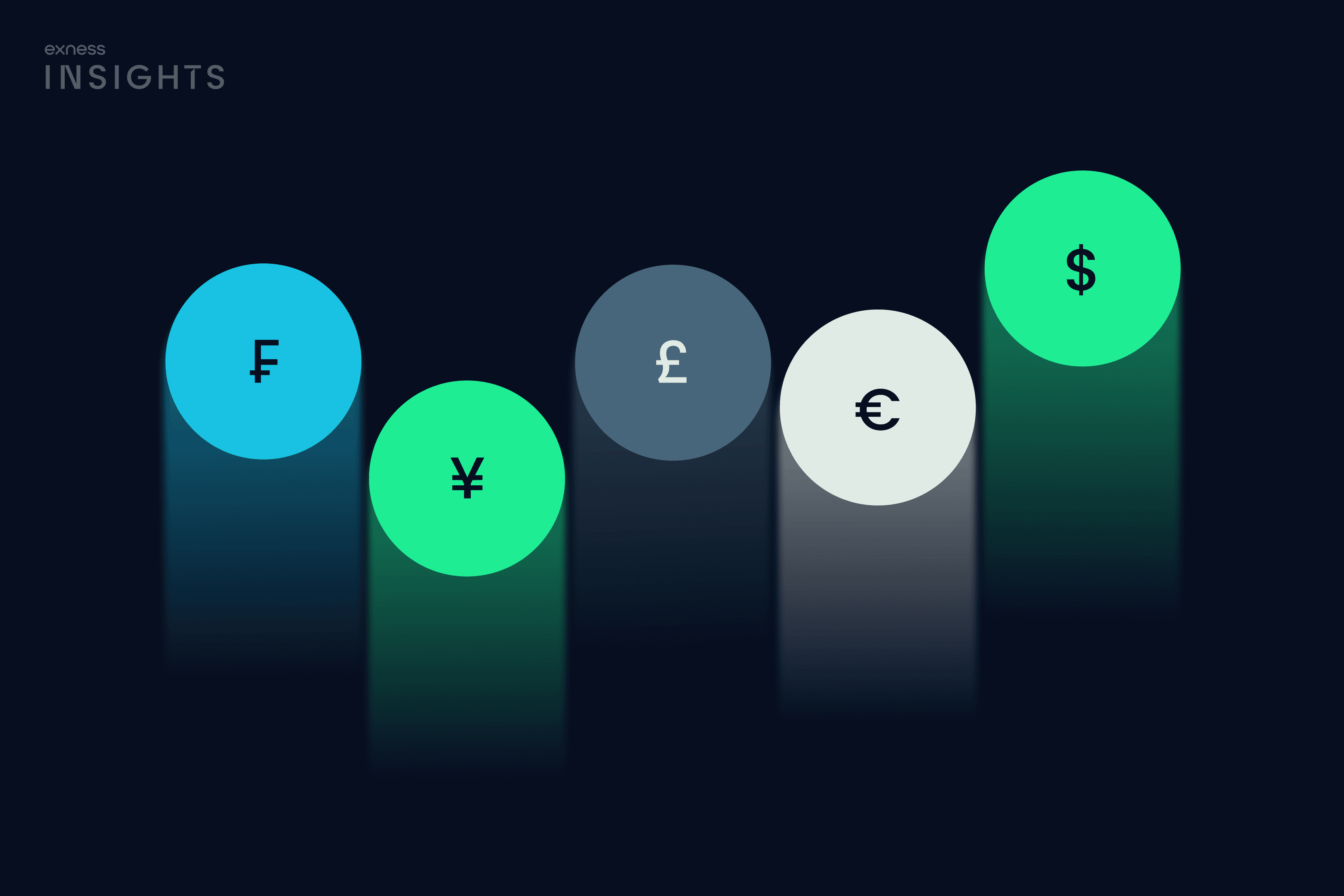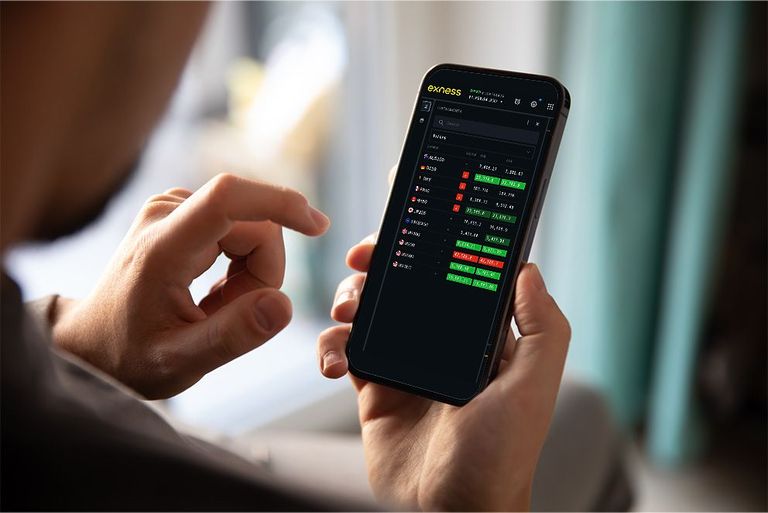
7 minute read
What Time Does the Forex Market Open on Sunday?
The forex market reopens every Sunday as global trading kicks off for the new week. Understanding exactly when this happens is crucial for traders looking to get ahead of potential weekend gaps and early market movements. As a trader with over a decade of experience, I've found that knowing these opening times can give you a significant edge when planning your weekly trading strategy.

🏆 Start Trading With Exness – Register Now! 🚀 or Visit the Broker’s Website ⭐
Forex Market Opening Time on Sunday
The forex market officially kicks off every week at 5:00 PM Eastern Time on Sunday. This corresponds to when trading begins in Sydney, Australia, which is the first major financial center to start the trading week. I've been trading for over 15 years, and I've found that this Sunday opening creates unique opportunities that many newer traders overlook.
For those on the West Coast of the US, that's 2:00 PM Pacific Time. In the UK, you're looking at 10:00 PM GMT (11:00 PM BST during daylight saving). If you're in Asia, this corresponds to early Monday morning, around 6:00 AM in Tokyo.
The Sunday open isn't just a technical point—it's a strategic moment. Price gaps frequently occur between Friday's close and Sunday's open due to weekend news and events that couldn't be priced in during market closure. I've caught some of my best trades by being ready when markets first open.
The Four Main Forex Trading Sessions
The forex market operates through four main trading sessions that overlap throughout the 24-hour cycle:
Sydney session: Opens Sunday at 5:00 PM ET (Monday morning local time)
Tokyo session: Opens at 7:00 PM ET
London session: Opens at 3:00 AM ET
New York session: Opens at 8:00 AM ET
Each session has its own personality. I've noticed the Sydney and Tokyo sessions tend to have lower volatility unless there's significant Asian news. The London session picks up the pace, and when London overlaps with New York (from 8:00 AM to 12:00 PM ET), we typically see the highest volume and volatility.
During my early years of trading, I made the mistake of treating all hours equally. Trust me, they're not. The currency pairs you trade should align with the active sessions—EUR/USD and GBP/USD move most during European hours, while USD/JPY might see more action during Asian sessions.
Weekend Market Closure and Sunday Opening
From Friday at 5:00 PM ET until Sunday at 5:00 PM ET, the forex market takes a breather. This 48-hour window represents the only time when forex trading truly stops. The market closes as the New York session ends on Friday and remains shut until Sydney opens on Sunday.
This weekend gap creates a pressure cooker effect. Major news events, political developments, or economic announcements that occur during the weekend can't be immediately traded. Instead, all that pent-up trading interest gets unleashed when markets reopen on Sunday.
I've seen huge gaps form at the Sunday open after significant weekend events. The Greek debt crisis, Brexit developments, and unexpected political outcomes have all created Sunday night price shocks. Smart traders prepare by checking weekend news before markets reopen.
Impact of the Sunday Opening on Forex Trading
The Sunday open has several distinct characteristics that make it both challenging and potentially rewarding:
Lower liquidity is the most noticeable feature. With fewer traders active and many institutional desks still lightly staffed, price movements can be exaggerated. I've witnessed 50-pip moves on Sunday that would take major news to create during peak hours.
Price gaps are common as the market adjusts to weekend developments. These gaps might offer opportunities but also present risks for orders left open over the weekend. I always close positions on Friday unless I have a strong conviction and wide stops.
Spreads widen significantly during the early hours after opening. Brokers protect themselves against volatility by increasing the difference between bid and ask prices. What might be a 1-pip spread on EUR/USD during peak hours could expand to 5 pips or more at Sunday's open.
After 15+ years in the market, I've developed a specific Sunday strategy: I watch but rarely trade the first few hours. Instead, I use this time to evaluate gaps, identify potential setups for the week ahead, and adjust my trading plan based on weekend developments.

🏆 Start Trading With Exness – Register Now! 🚀 or Visit the Broker’s Website ⭐
Exness and Forex Market Hours
Exness provides comprehensive market access aligned with global forex trading hours. The platform becomes available shortly before the Sydney open on Sunday at 5:00 PM ET and remains operational until the New York close on Friday at 5:00 PM ET.
What I appreciate about Exness is their transparency about weekend trading conditions. They clearly communicate when spreads might be wider and provide tools to navigate the Sunday open effectively. Their economic calendar is particularly useful for identifying potential market movers ahead of time.
The platform offers features specifically helpful for Sunday trading, including pending orders that can help you capitalize on price gaps without having to be physically present at market open. Their mobile app sends notifications when significant gaps occur, which has saved me countless hours of screen watching.
One practical tip I've learned: Exness allows you to set pending orders during the weekend. I often use this feature to position myself for Sunday gaps, placing orders above and below Friday's closing price to catch potential breakouts in either direction.
Conclusion
Trading the Sunday forex market opening requires understanding its unique characteristics—lower liquidity, wider spreads, and the potential for gaps. By approaching this specific timeframe with the right strategy and expectations, you can turn these challenges into opportunities.
After years of trading Sunday openings, I've found them to be valuable not just for immediate trading but as a window into market sentiment for the coming week. The direction and strength of that initial move often sets the tone for Monday's sessions.
Remember that proper risk management becomes even more crucial during these less liquid hours. Use wider stops, smaller position sizes, and always be aware of major weekend developments that could impact your currency pairs.
Frequently Asked Questions (FAQs)
What time does the Forex market open on Sunday in my local time zone?
The forex market opens at 5:00 PM Eastern Time on Sunday. To convert to your local time zone, simply adjust from ET. For example, it's 10:00 PM in London (GMT/BST), 2:00 PM Pacific Time, 11:00 PM in Central Europe, and 6:00 AM Monday morning in Tokyo. I recommend using a forex clock tool or setting multiple time zone displays on your trading platform to keep track of market hours across different regions.
Can I trade the Forex market using Exness on Sunday?
Yes, you can trade on Exness when the market opens at 5:00 PM ET on Sunday. From my experience, Exness provides reliable access to the markets from the very beginning of the weekly session. Just be aware that during the first few hours of trading on Sunday, you'll typically encounter wider spreads and potentially less favorable execution conditions due to lower market liquidity. I suggest starting with smaller positions until liquidity improves as Asian markets become fully active.
What tools can I use on Exness to trade when the market opens on Sunday?
Exness offers several tools that I've found particularly useful for Sunday trading. Their economic calendar helps track weekend developments that might impact the market open. The price alert feature on their mobile app can notify you of significant gaps or movements without requiring constant monitoring. Pending orders are especially valuable—you can set these during the weekend to automatically execute if price gaps beyond certain levels. I also frequently use their market sentiment indicators to gauge how other traders are positioning ahead of the weekly open.
Does the Forex market have holidays or breaks during the week?
Yes, the forex market does observe certain holidays, though it's less standardized than stock markets. Major holidays like Christmas, New Year's Day, and Easter typically see dramatically reduced liquidity across all sessions, even if markets technically remain open. Individual currency pairs may also be affected by country-specific holidays—for example, JPY pairs during Japanese holidays or GBP during UK bank holidays. From my trading journal, I've noticed that these holiday-affected sessions behave similarly to Sunday opens, with wider spreads and choppy price action. Exness provides a holiday calendar that I check regularly to avoid these problematic trading periods.










